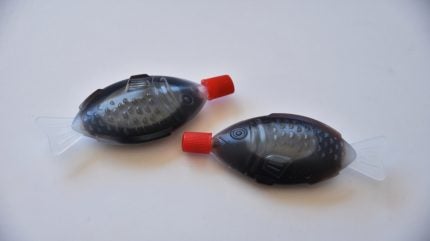
South Australia has become the first region globally to prohibit the use of plastic, fish-shaped soy sauce containers, as part of its commitment to reduce single-use plastic waste.
The initiative is an extension of the state’s environmental legislation updated in September 2023, which already banned items such as plastic supermarket bags, straws and cutlery. The state has been gradually banning plastic products since 2021.

Discover B2B Marketing That Performs
Combine business intelligence and editorial excellence to reach engaged professionals across 36 leading media platforms.
The ban targets the small dispensers commonly found in takeaway sushi meals, known as shoyu-tai or soy sauce snappers, which are not easily processed by recycling sorting machinery due to their size.
Effective from 1 September 2025, the prohibition includes all pre-filled soy sauce containers of 30ml that come with a lid, cap or any form of sealing mechanism.
Despite being made from recyclable polyethylene, the containers often fail to be properly recycled and end up in landfills.
The fish-shaped containers, invented by Teruo Watanabe in Japan in 1954, transitioned from their original glass or ceramic materials to plastic, becoming a popular feature in sushi takeaways.

US Tariffs are shifting - will you react or anticipate?
Don’t let policy changes catch you off guard. Stay proactive with real-time data and expert analysis.
By GlobalDataThe latest measure also includes the phase-out of non-compostable fruit and vegetable stickers and prepackaged cups and bowls for takeaway meals.
The ban will not impact larger soy sauce bottles and sachets, which will still be available for sushi consumers.
In January 2024, an Australia Institute think tank research revealed that the Australian national government could potentially raise A$1.5bn ($1bn) annually by implementing a tax on plastic packaging waste, similar to the system currently in place in the European Union.





